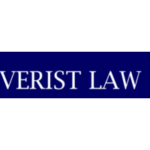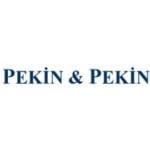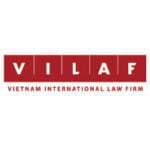-
Please briefly describe the regulatory framework and landscape of both equity and debt capital market in your jurisdiction, including the major regimes, regulators and authorities.
The capital markets law in Indonesia is Law 8 of 1995 on Capital Markets as amended by Law 4 of 2023 on Development and Strengthening of Financial Sectors (“Capital Markets Law”). The Capital Markets Law regulates all capital markets aspects in Indonesia, including public offering of equity or debt securities, disclosures and reporting, stock exchange, issuer, clearing and guarantee institution, depository and settlement institution, securities company and financial advisor, and criminal activities in the capital markets sector.
The Financial Services Authority (Otoritas Jasa Keuangan or “OJK”), established under Law 21 of 2011 on OJK (as amended) serves as the primary regulator and supervisor of capital markets activities in Indonesia. OJK’s functions and authorities are to oversee, supervise, examine, and investigate financial service activities by institutions engaged in banking, capital market, insurance, pension funds, finance, and other financial services sectors. In addition, OJK is responsible for issuing regulations, including on registration statement requirements for public offerings or private placements.
Besides OJK, public companies in Indonesia are also subject to the supervision of PT Bursa Efek Indonesia (“IDX”), the sole stock exchange in Indonesia. IDX is responsible for issuing listing regulations, including on disclosure and reporting requirements for listed companies.
-
Please briefly describe the common exemptions for securities offerings without prospectus and/or regulatory registration in your market.
The Capital Markets Law defines a public offering as securities offering by an issuer to more than 100 parties, or a sale of securities to more than 50 parties within a certain amount and period. To conduct a public offering, the issuer must submit a registration statement to OJK and obtain an effective statement. Therefore, offerings made to no more than 100 parties and resulting in sales to no more than 50 parties do not qualify as public offerings and thus do not require a registration statement.
Under Article 70(2) of the Capital Markets Law, a registration statement is not required for:
- The offering of debt securities and/or sukuk with a maturity period of less than one year;
- The offering of securities issued by and/or guaranteed by the Indonesian government;
- The offering of debt securities and/or sukuk to professional investors by the Indonesia Deposit Insurance Corporation in implementing its duties and functions;
- The offering of securities or commercial papers that are specifically governed by law; or
- Any other offerings of securities determined by OJK.
In addition, under OJK Regulation 29/POJK.04/2021 on Offerings Classified as Non-Public Offerings and OJK Circular Letter 33/SEOJK.04/2022 on Guidelines for Implementing Securities Offerings not Classified as Public Offerings, a securities offering will not be deemed a public offering in Indonesia and therefore will not require a registration statement, if:
- The total value of the offering does not exceed IDR5 billion; and
- The offering is conducted either in a single tranche or in several instances within 12-month period.
OJK may also determine other thresholds in certain circumstances, if:
- The securities offering is conducted by a supranational institution;
- The securities offering is an equity offering by a foreign company listed on the stock exchange or public company to its employees, directors, and/or commissioners and/or controlled companies;
- The purpose of the securities offering is intended to contribute to financial market deepening; and/or
- The purpose of the securities offering is to support government policies.
Furthermore, under OJK Regulation 30/POJK.04/2019 on Issuance of Debt-Linked Securities and/or Sukuk issued through Private Placement, private placement of debt securities and/or sukuk of at least IDR1 billion will not require a registration statement and announcement of the prospectus. However, the issuer must still submit offering documents to the OJK, namely an application letter for the stipulation of the securities offering (Surat Permohonan Penetapan), provide an information memorandum for the subscribers, and obtain a credit rating from a licensed rating agency.
-
Please describe the insider trading regulations and describe what a public company would generally do to prevent any violation of such regulations.
The elucidation of Article 95 of Capital Markets Law described an “insider” as:
- A commissioner, director, or employee of the issuer or public company;
- A substantial shareholder (pemegang saham utama) of the issuer or public company;
- An individual, who because of his/her position or profession, or because of a business relationship with the issuer or public company, has access to MNPI (as defined below); or
- An individual who within the last six months was a person defined under points (i) to (iii) above.
The Capital Markets Law prohibits an insider who possesses inside information to:
- Trade the securities of the public company;
- Influence other parties to trade the securities of the public company; or
- Provide inside information to other parties that would be reasonably expected to use such information in securities trading.
Insider information is defined as “material non-public information”, which consists of information or facts that may affect the valuation of the securities’ price and/or the decision of an investor or potential investor, that is possessed by an insider and not yet publicly available (“MNPI”).
OJK Regulation 78/POJK.04/2017 on Unrestricted Securities Transaction for Insider exempts the following transactions from being deemed an insider transaction:
- A securities transaction between insiders of the same issuer or public company that have the same MNPI, and such transaction is performed outside IDX (i.e., over-the-counter transaction); or
- A securities transaction between:
- An insider of an issuer or public company who possesses MNPI; and
- A person that is not an insider of such issuer or public company or another company that is engaged in transaction with such issuer or public company (“non-insider”), provided that the transaction is performed outside IDX and comply with these requirements:
- The insider has given all its MNPI to the non-insider;
- The non-insider does not use the MNPI except in connection with the securities transaction with the insider;
- The non-insider has given a written statement to the insider who shared the MNPI stating that the non-insider will keep confidential the MNPI received and will not use the MNPI for any purpose other than in connection with the securities transaction with the insider; and
- The non-insider will not conduct any transaction for the securities of the issuer or public company or any other company that is involved in a transaction with such issuer or public company for six months from the date of provision of MNPI, other than the securities transaction with the insider.
Although there are no specific obligations, a public company may establish their internal insider trading policies to minimise potential violations by employees or management. These policies often include:
- Trading “blackouts” for Insider during periods close to the release of financial statements;
- Applying information barriers to ensure the MNPI is not leaked to other employees or management members; and
- Cleansing the MNPI to the public (e.g. uploading it to the public company’s website).
-
What are the key remedies available to shareholders of public companies / debt securities holders in your market?
The Capital Markets Law provides, among others, these remedies and protections for shareholders of a public company:
- Any party that suffers losses due to violations of the Capital Markets Law may sue for compensation against the party causing the violation, either jointly or severally with other parties with similar claims;
- Any party may claim compensation against the parties signing the registration statement, the board of directors or commissioners of the issuer, each lead underwriter, and other capital market professionals involved in the offering, for losses suffered due to false or misleading information in the registration statement. Such claims must be filed within five years from the date of the registration statement is declared effective; and
- Investors may claim compensation from one or more of the underwriters for losses suffered by it due to the underwriters’ negligence.
Under Law 40 of 2007 on Limited Liability Companies (as amended) (“Companies Law”), a shareholder may request the company to buy back their share at fair market value if the shareholder objects to the following actions that could be detrimental to them or the company:
- Amendment to the articles of association;
- Transfer or encumbrance over assets valued exceeds 50% of the company’s net assets; or
- Merger, consolidation, acquisition, or spin-off.
If the company suffers losses due to the board of directors’ fault or negligence, shareholders representing at least 1/10 of the total number of shares with voting rights may call an extraordinary general meeting of shareholders (“GMS”) or bring claims to a district court against relevant directors. If there is a change of control in the public company, the new controller must conduct a mandatory tender offer (“MTO”) to the remaining shareholders. Lastly, if a public company delists or goes private, minority shareholders may sell their shares through a voluntary tender offer to a third party or other existing shareholders or the company may conduct a share buyback of these shares, provided that the number of shareholders is reduced to less than 50 parties.
Meanwhile, the key remedies for bondholders are among others:
- The trustee (“wali amanat”) must compensate bondholders for losses caused by the trustee’s negligence in carrying out its duties; and
- The bondholders may seek to enforce the contractual obligations under the trust agreement (“perjanjian perwaliamanatan”) by, among others, instructing issuer to make mandatory pre-payment (if any continuing default occur), enforcing the collateral granted (if any), and filling a bankruptcy or suspension of payment claim against the issuer.
-
Please describe the expected outlook in fund raising activities (equity and debt) in your market in 2025.
Fundraising activities in Indonesia’s capital markets are expected to face a cautious outlook in 2025. With President Prabowo Subianto newly in office, investors are closely monitoring how his economic policies will shape the market, especially in terms of regulatory stability and fiscal discipline. On the global side, the re-election of President Donald Trump has added uncertainty, as his administration signals a return to more restrictive and domestically focused economic policies and also raises geopolitical tensions, renewing fears of a potential for a third world war, which could severely impact investor confidence and trigger capital outflows from emerging markets like Indonesia. These factors have contributed to early market volatility and reduced foreign investor interest in the earlier stage of 2025.
Despite these challenges, Indonesia’s fundraising outlook remains cautiously optimistic. In 2025, 66 companies are projected to go public, an increase from the 62 companies projected for 2024. However, actual initial public offering (“IPO”) activities have slowed, with only 14 companies listed on the IDX as of May 2025, compared to 24 companies during the same period last year. This suggests that while investor interest remains, capital market performance will largely depend on economic and policy developments in the months ahead.
-
What are the essential requirements for listing a company in the main stock exchange(s) in your market? Please describe the simplified regime (if any) for company seeking a dual-listing in your market.
The essential requirements for a company to list on IDX are as follows:
- The entity must be a limited liability company (perseroan terbatas);
- The company has obtained an effective statement from OJK;
- If the issuer is a subsidiary or a parent company of a listed company, which causes their financial statements to be consolidated, the potential issuer must:
- Submit an independent appraisal report confirming that both companies can continue their respective businesses if they are no longer affiliated with each other; and
- Submit a statement that the issuer will continuously fulfil the listing requirements as evidenced by its audited proforma financials;
- Ensure that its share price at the IPO is at least IDR100 (or IDR50 for Acceleration Board);
- If the issuer plans to issue warrants with the IPO, the price of the warrant must be at least 90% of the offering price or the initial price of the shares and at the minimum equal to the nominal value of the shares;
- The issuer must enter into an underwriting agreement with the underwriters and the underwriting must be fully committed (or at least in best effort for Acceleration Board); and
- The shares must be registered with Indonesian Central Securities Depository (PT Kustodian Sentral Efek Indonesia or KSEI).
Please note that securities can be listed on the Main Board, New Economy Board, Development Board, or Acceleration Board, each having specific requirements based on the potential issuer’s financial performance.
As of the date of this guideline, IDX has not issued regulations to simplify the requirements for dual listing. Nonetheless, dual listing, where a company is listed both on IDX and a foreign stock exchange, is possible. For instance, PT Telkom Indonesia (Persero) Tbk has listed American Depository Receipts (ADRs) on the New York Stock Exchange. Although Indonesian regulations permit such instruments, they remain rarely used.
-
Are weighted voting rights in listed companies allowed in your market? What special rights are allowed to be reserved (if any) to certain shareholders after a company goes public?
Under the Companies Law, every one share provides one voting right unless the articles of association regulate otherwise. Specifically for public companies, issued shares must have the same rights for each shareholder except for multiple voting share structures.
In Indonesia, weighted voting rights for listed companies are known as multiple voting shares (“MVS”) and is regulated under OJK Regulation 22/POJK.04/2021 on Implementation of Classification of Shares with Multiple Voting Rights by Issuers with Innovation and High Growth Conducting Public Offering of Shares as partially revoked by OJK Regulation No. 9 of 2025 on Dematerialisation of Equity Securities and Management of Unclaimed Assets in the Capital Market which revoke provision on the issuance of MV shares in script format for certain condition. As of 2025, the only listed company that applies the MVS structure is PT GoTo Gojek Tokopedia Tbk.
MVS is a classification of share that allows the holder to cast more than one vote per share. A public company can issue MVS if:
- It uses a specific technology to create an innovative product, which may increase productivity, economic growth, and social benefit;
- Its shareholders have made significant contribution in technology utilisation;
- Its minimum asset is IDR2 trillion;
- It has carried out its business activities for at least three years before submitting the registration statement to the OJK;
- Its compound annual growth rate (“CAGR”) of its total assets for the last three years is at least 20%;
- It has at least a 30% of CAGR of its revenue for the last three years;
- It has never carried out an IPO; and
- It fulfils any other criteria as determined by the OJK.
Moreover, the public company must ensure that its articles of association regulate:
- The classification of shares and rights attached to the shares;
- The criteria of parties eligible to hold MVS;
- The ratio of voting rights of MVS against that of ordinary shares;
- That the limitation of voting rights of a shareholder (either from MVS or ordinary shares) is a maximum of 90% of all voting rights, including regulating treatment of shareholder that has more than 90% of all voting rights;
- That the voting rights from MVS and ordinary shares have equal power with respect to agenda that must be resolved in a GMS;
- The term of MVS and any extension;
- The conditions that can trigger the conversion of MVS into ordinary shares before the end of the MVS term; and
- the treatment of different votes cast by MVS holders in a GMS, where a lesser vote is deemed to cast the same vote as the majority vote cast by MVS holders.
MVS can be implemented for a maximum of 10 years from the effective date of the IPO, which may be extended for another 10 years if approved by the company’s independent shareholders. Other than the expiry of the MVS period, the MVS will convert into ordinary shares if:
- The MVS holder passes away or is declared under conservatorship, and the MVS is not transferred to another MVS holder or to a party designated as eligible to hold MVS within six months;
- The MVS holder transfers their MVS to a party not designated as eligible to hold MVS in the IPO prospectus;
- The MVS holder, either individually or jointly, holds no more than 50% of the total voting rights in the issuer, and this condition is not remedied within six months of its occurrence;
- If the MVS holder is a legal entity, it no longer fulfils the eligibility criteria as described above; or
- If the MVS holder is a director of the issuer and no longer serves as a director or is unable to perform their duties as a director pursuant to a decision by the relevant authority (including OJK).
Aside from MVS, a listed company in Indonesia cannot have multiple classes of shares with different rights.
-
Is listing of SPAC allowed in your market? If so, please briefly describe the relevant regulations for SPAC listing.
Indonesian law does not recognise the listing of the Special Purpose Acquisition Companies (“SPAC”).
-
Please describe the potential prospectus liabilities in your market.
Prospectus liability is governed by the Capital Markets Law, OJK Regulation 8/POJK.04/2017 on Form and Contents of Prospectus and Abridged Prospectus for Equity Public Offerings, and OJK Regulation 9/POJK.04/2017 on Form and Contents of Prospectus and Abridged Prospectus for Debt Public Offerings. These regulations stipulate that liability for material misleading statements or omission of material information in a prospectus or other registration statement document may be attributed to the following:
- Parties that signed the registration statement including the prospectus;
- Members of the Board of Directors and Board of Commissioners of the company when the registration statement became effective;
- Underwriters; and
- Capital market professionals who have provided opinion or statement and have consented to the inclusion of such opinion or statement included in the registration statement.
The parties identified above may be held individually or jointly liable for any losses arising from material misleading statements or omissions of material information in a prospectus or registration statement. However, underwriters and capital market professionals are exempt from liability if they can demonstrate that they acted professionally and exercised due care to ensure that:
- The disclosure or statement made were correct; and
- No material facts known to them were omitted from the prospectus and registration statement.
Claims relating to material misleading statements or omissions must be brought within five years from the date of the registration statement declared effective.
In addition to the above, OJK can issue written orders to any relevant parties to carry out and/or to not carry out certain activities in order to comply with the rules and regulations in the capital market sector, prevent the losses of public shareholders, and/or protect public shareholders interests. OJK can also impose sanctions ranging from written warnings, fines, limitation of business activities, suspension of business activities, revocation of licenses, cancellation of approval, to cancellation of registration statement.
Moreover, criminal sanctions also apply to parties who intentionally seek to deceive or cause harm to others or mislead OJK. This includes actions such as destroying, erasing, altering, obscuring, concealing, or falsifying records of licensed entities, including issuers and public companies. Such conduct is punishable by imprisonment for a minimum of one year and a maximum of five years, and fines ranging from IDR1.5 billion to IDR50 billion.
-
Please describe the key minority shareholder protection mechanisms in your market.
Generally, capital markets laws and regulations protect public shareholders (including minority shareholders) and
ensure equal distribution of information for stakeholders by requiring public companies to publicly disclose material information.
Other key minority shareholder protection mechanisms include:
- Right to call GMS by one or more shareholders representing at least 1/10 of the total shares with valid voting rights, or a lower threshold if specified by the public companies articles of association;
- Right to request buyback of shares if they disagree with certain corporate actions (i.e. merger, acquisition, consolidation, or spin-off);
- Requirement for disclosure, fairness opinions, and in certain circumstances, for transactions to be approved by the independent shareholders (i.e., material transactions and/or affiliated transactions and/or conflict of interest transactions);
- Right to tender their shares to the new controller through an MTO in a change of control in the company; and
- In the event of liquidation of an issuer or public company, public shareholders holding less than 5% of shares and meeting independence criteria (namely, not being directors, commissioners, controlling shareholders, key employees, or their affiliates or nominees) are granted priority over non-public shareholders in the distribution of remaining liquidation assets, following concurrent creditors.
Please refer to our responses to Questions 4 and 12 on protection of minority shareholders.
-
What are the common types of transactions involving public companies that would require regulatory scrutiny and/or disclosure?
Transactions that typically trigger regulatory scrutiny and disclosures include IPO, rights issue, private placement, debt securities issuance, tender offer, go private and delisting, public merger, public acquisition, material transactions, affiliated transactions, change of business activities, buyback, and conflict of interest transactions.
-
Please describe the scope of related parties and introduce any special regulatory approval and disclosure mechanism in place for related parties’ transactions.
Under OJK Regulation 42/POJK.04/2020 on Affiliated Party Transactions and Conflict of Interest Transactions (“OJK Regulation 42”) an affiliated transaction is defined as activities and/or transactions by a public company or controlled company with the affiliate of the public company or its directors, commissioners, major shareholders, or controllers, including activities and/or transactions carried out by a public company or controlled company for the benefit of an affiliate of that public company or affiliate of a director, commissioner, majority shareholder, or controller.
An affiliate (“Affiliate”) occurs due to:
- Family relationship from marriage to the second degree, both horizontally and vertically, which consists of a relationship between a person and:
- Their husband or wife;
- Parents of the husband or wife and husband or wife of the child;
- Grandparents of the husband or wife and husband or wife of the grandchildren;
- Relative of the husband or wife including the husband or wife of the said relative member; or
- The husband or wife and relative.
- Family relationship from descent up to the second degree, both horizontally and vertically, which consists of a relationship between a person and:
- Parents and children;
- Grandparents and grandchildren; or
- Relatives.
- A relationship between a party with an employee, director, or commissioner of that party;
- A relationship between two or more companies with at least one common director, committee, commissioner or supervisor;
- A relationship between a company and a party, either directly or indirectly, in any manner, controlling or being controlled by that company or party in determining management and/or policies of that company or party;
- A relationship between two or more companies controlled, either directly or indirectly, in any manner, in determining their management and/or policies by the same party; or
- A relationship between a company and its major shareholders who directly or indirectly own at least 20% voting rights within the company.
In an affiliate transaction, a public company must, among others:
- Obtain an appraisal report and/or fairness opinion prepared by an independent appraiser registered with OJK, to determine the fair value of the object of the affiliated transaction and/or the fairness of such transaction;
- Prepare and announce a disclosure of information to the public, including a summary of the fairness opinion, within two business days after the transaction becomes final and binding. If the affiliated transaction must be approved by the independent shareholders at a GMS, this announcement is made simultaneously with the date of the announcement of GMS;
- Submit evidence of the disclosure and supporting documents to OJK; and
- Obtain the approval of independent shareholders at the GMS if:
- The affiliated transaction’s value exceeds the materiality threshold (as governed under OJK Regulation No. OJK Regulation 17/POJK.04/2020 on Material Transaction and Change of Business Activities;
- The affiliated transaction may disrupt the public company’s business continuity;
- Based on its discretion, OJK considers that the affiliated transaction requires an independent GMS approval; and/or
- The transaction is a conflict-of-interest transaction.
Independent shareholders are shareholders of the public company who:
- Have no economic interest in the particular transaction; and
- Are not:
- A director, commissioner, major shareholder, or controller of the public company; or
- An Affiliate of any director, commissioner, major shareholder, or controller of the public company.
Under OJK Regulation 42, the following transactions are exempted from the fairness opinion and shareholders’ approval requirements, however a report to OJK within two business days must still be submitted by the public company, if:
- The transaction is conducted to implement a law, regulation, or court decision;
- The transaction is between: (a) the public company and its controlled company where the public company holds 99% ownership; (b) controlled companies where the public company owns 99% of the shares of the controlled companies; (c) a controlled company with a company owned 99% by the controlled company;
- The transaction value does not exceed 0.5% of the paid-up capital of the public company or IDR5 billion (whichever is lower);
- The transaction is a loan received directly from domestic or foreign banks, venture capital companies, financing companies, or infrastructure-financing companies, or the transaction is a guarantee transaction to domestic or foreign banks, venture capital companies, financing companies, or infrastructure-financing companies for loans that are directly received by the public company or its controlled company;
- The transaction is an increase or decrease of capital participation in a subsidiary to maintain the public company’s shareholding percentage within one year from the implementation of such capital participation; and
- The transaction’s purpose is for restructuring of a public company controlled, either directly or indirectly, by the government.
- Family relationship from marriage to the second degree, both horizontally and vertically, which consists of a relationship between a person and:
-
What are the key continuing obligations of a substantial shareholder and controlling shareholder of a listed company?
Under OJK Regulation No. 4 of 2024 on Report on Shares Ownership or Any Changes in Shares Ownership of Public Companies and Report on Activities of Shares Encumbrances of Public Companies, any shareholder holding 5% of the shares with voting rights in a public company must report its ownership and any changes to it—i.e. any change in the first decimal place of their shareholding—to OJK within five business days (or within three business days once the electronic reporting system is implemented by OJK). For instance, a shareholder who holds 5.1% of the shares and increases their shareholding to 6.2% must report the 1.1% increase of their shareholding to the public. However, no reporting obligation arises for an increase from 6.1% to 6.99%, as there is no change in the first decimal place. The same reporting obligation applies to any shareholder who encumbers at least 5% of their voting shares.
Furthermore, a controller of a public company is responsible for certain key actions related to the company, including at least the following:
- Holding the annual GMS;
- Attending the GMS;
- Ensuring the business continuity of the public company; and
- Appointing members of the company’s board of directors and board of commissioners.
-
What corporate actions or transactions require shareholders’ approval?
Under the Companies Law, some transactions that require shareholders’ approval are:
- IPO;
- Merger, consolidation, acquisition, spin-off, or dissolution;
- Increase in authorised capital or issued and paid-up capital of the company;
- Changes of business activities;
- Amendments to articles of association;
- Any other transactions that require shareholders’ approval under the company’s articles of association and the Companies Law.
In addition, certain transactions that fulfill the following criteria require shareholders’ approval:
- The transaction value is more than 50% of the public company’s equity;
- The total assets of the transaction object divided by the total assets of the public company is more than 50%;
- The net profit of the transaction object divided by the net profit of the public company is more than 50%;
- The revenue of the transaction object divided by the revenue of the public company is more than 50%; or
- If the public company has negative equity, a transaction will be material if it constitutes more than 25% of the total assets of the public company (“Materiality Threshold”).
The criteria listed in point (ii) to (iv) are applicable only to the acquisition and disposal of a company or business segment.
Certain transactions referred above include, among others:
- any investment or participation in a company, project and/or business activities;
- any purchase, sale, usage, exchange of assets or business segments;
- any acquisition, disposal, and/or use of services;
- lease of assets;
- financing transactions;
- securing the company’s assets and/or controlled company’s assets; and
- providing corporate guarantees.
The Materiality Threshold is calculated based on the most recent of the company’s:
- Audited financial statements;
- Quarterly financial statements with an accountant’s report with limited review or audit results (March, June or September); or
- Audited interim financial statement other than those stated in point (ii) above.
-
Under what circumstances a mandatory tender offer would be triggered? Is there any exemption commonly relied upon?
An MTO is triggered when there is a change of control in the public company. Under OJK Regulation 9/POJK.04/2018 on Acquisitions of Public Companies, a change of control is deemed to occur when the controller of the public company changes. A controller means a party that directly or indirectly:
- Holds more than 50% of the total issued shares with voting rights; or
- Has the ability to determine in any way the management and/or policy of the public company.
An MTO is not required in certain circumstances where the change of control arises from:
- Marriage or inheritance;
- The acquisition of shares in a public company within any 12-month period, provided the total acquired does not exceed 10% and the acquirer previously held no shares in the company;
- The implementation of duties and authority from a body, government institution, or the Republic of Indonesia based on the law;
- The direct share purchase by a body, government institution, or the Republic of Indonesia as part of the implementation of point (iii) above;
- A final and binding (inkracht) court decision or judgment;
- Corporate actions such as merger, spin off, dissolution or shareholder liquidation;
- A grant (hibah) of shares based on a share granting agreement without any form of consideration;
- The enforcement of a security over shares in connection with a loan agreement, or as part of a restructuring of the public company as determined by a government body, institution, or the Republic of Indonesia under the law;
- The acquisition of shares through the exercise of pre-emptive rights in proportion to existing shareholdings, as regulated by the OJK regulation on rights issues;
- The acquisition of shares through a capital increase for the purpose of improving the public company’s financial condition, as regulated by the OJK regulation on capital increases without pre-emptive rights;
- The implementation of policies by a body, government institution, or the Republic of Indonesia;
- A voluntary tender offer; or
- Any action that has been disclosed in a public equity offering prospectus in accordance with the relevant OJK regulation, provided such action takes place within one year from the effective date of the registration statement.
In addition, an MTO is not required if conducting the MTO would result in a breach of law, for example, if it would cause the new controller to hold more shares than is legally permitted.
-
Are public companies required to engage any independent directors? What are the specific requirements for a director to be considered as “independent”?
As of 2018, IDX no longer requires a public company to appoint independent director(s).
-
What financial statements are required for a public equity offering? When do financial statements go stale? Under what accounting standards do the financial statements have to be prepared?
Financial statements must be prepared based on the Indonesian Financial Accounting Standards. Under OJK Regulation 7/POJK.04/2017 on Registration Statement Documents for Public Offerings of Equity, Debt and/or Sukuk, an issuer must submit their audited financial statements for the last three years and its interim audited financial statement (if any).
IDX also imposes requirements on the opinion of the auditor on the financial statements depending on the listing board chosen:
Main Board / New Economy Board Development Board Acceleration Board Audited financial statements for the past three consecutive years, and the past two audited financial statements and the latest audited interim financial statements have obtained unqualified opinions. Audited financial statements for the past one year and the latest audited interim financial statements (if any) have obtained an unqualified opinion. Audited financial statements for the past one year or during establishment (if the issuer has not existed for a year), have obtained an unqualified opinion. Financial statements for the public offering will be considered stale if more than six months have passed when the registration statement becomes effective. In such cases, the issuer must provide the latest audited interim financial statements to ensure the financial disclosures remain current.
-
Please describe the key environmental, social, and governance (ESG) and sustainability requirements in your market. What are the key recent changes or potential changes?
Generally, prospectus or information memorandum for ESG-labelled bonds and sukuk must include a dedicated section disclosing relevant ESG regulations, policies, risks, and sustainability frameworks. OJK Regulation No. 18 of 2023 on Issuance and Requirements of Sustainable Debt and Sukuk Securities (“OJK Regulation 18”) regulates the issuance of green bonds, green sukuk, social bonds/sukuk, sustainability bonds/sukuk, sukuk-linked waqf and sustainability-linked bonds/sukuk. The use of proceeds of these debts and sukuk securities must be allocated to activities aligned with ESG objectives.
In addition to the above, issuers and public companies are also required to prepare and submit a sustainability report to OJK annually, either as a standalone report or as part of the annual report. The sustainability report, which will be made publicly available, must disclose the issuer’s or public company’s economic, financial, social, and environmental performance in conducting sustainable business practices.
Some key recent changes related to ESG in the Indonesian capital markets are:
- OJK Regulation 18 replaces OJK Regulation 60/POJK.04/2017 on Issuance and Requirements of Green Bonds. The key difference is the widened scope that also covers sharia sustainable securities and private placement.
- In 2023, OJK became authorised to regulate and oversee financial services activities in the carbon exchange sector operated by IDX. In this respect, OJK has issued OJK Regulation 14 of 2023 on Carbon Trading through Carbon Exchange and OJK Circular Letter 12/SEOJK.04/2023 on the Procedures for Organising Carbon Trading through Carbon Exchange. Carbon units are considered as securities and may be traded directly between parties and through the carbon exchange.
-
What are the typical offering structures for issuing debt securities in your jurisdiction? Does the holding company issue debt securities directly or indirectly (by setting up a SPV)? What are the main purposes for issuing debt securities indirectly?
Commonly, the listed entity or parent company acts as the issuer, with subsidiaries or controller sometimes acting as guarantors. This is because the former is typically the most creditworthy entity within the corporate group. Accordingly, issuers offering debt securities with maturities of more than one year are required to obtain a credit rating from a licensed rating agency for each classification of debt securities offered to the public. These credit ratings must be updated annually until all obligations under the securities have been fulfilled.
Where the issuer is a holding company, credit support may be enhanced by having guarantees from its material subsidiaries or parent company.
In securitization or project finance, bonds are sometimes issued directly by a subsidiary without additional credit support. Here, an SPV may be established as the issuer of offshore debt securities with repayment funded by the project or underlying assets being securitized. This bankruptcy-remote SPV can be deemed more creditworthy than its parent as it is not subject to the general credit risk of the parent company, consequently allowing it to issue bonds at a better financing rate.
-
Are trust structures adopted for issuing debt securities in your jurisdiction? What are the typical trustee’s duties and obligations under the trust structure after the offering?
In Indonesia, the trust structure was introduced for the first time under Law No. 4 of 2023 on Development and Strengthening of Financial Sectors, under which a trustee (pengelola dana perwalian) carries out trust fund management activities. Previously, the only recognised form of trust was in the context of bond issuance, represented by a trustee (“wali amanat”), who acts for and on behalf of bondholders in and out of court and enters into a trust deed agreement (“perjanjian perwaliamanatan”) with the issuer. Under the Capital Markets Law, wali amanat acts based on the power of attorney given by the bondholder stipulated in the perjanjian perwaliamanatan and its duties are to represent bondholders inside and outside courts, monitor the issuer and its financial conditions (ensure that the issuer has sufficient fund to pay interests and principal amount), and hold bondholder meetings to decide amendments to the bonds.
Rights and obligations of wali amanat and bondholders are regulated under perjanjian perwaliamanatan, which contains, among others, identity of the parties, wali amanat’s authorities, restrictive covenants against the issuer, and use of proceeds. If debt securities are issued through a private placement, bondholders will be represented by a monitoring agent through a monitoring agreement. The agent will monitorthe issuer’s compliance with obligations relating to the bondholder’s interests and must report issuer’s negligence or circumstances that may hurt the bondholder’s interests to OJK.
-
What are the typical credit enhancement measure (guarantee, letter of credit or keep-well deed) for issuing debt securities? Please describe the factors when considering which credit enhancement structure to adopt.
Debt securities in Indonesia may include credit enhancements to reduce the risk of default for the investors. Credit enhancements are typically provided to boost credit ratings and marketability of debt securities.
i. Collateral
Issuers may grant Indonesian law-governed collateral over their assets, which include pledge, fiducia, hypothec (for fixed assets), and mortgage (for fixed assets). If the issuer’s defaults or goes bankrupt, these collaterals give priority to investors over the secured assets and allow investors to directly enforce the collateral.
ii. Guarantees
The parent company, subsidiary, or beneficial owner of the issuer may provide guarantees, which constitute a contractual obligation, to repay the amount owed by the issuer if it defaults.
iii. Repayment ranking
While uncommon in Indonesia, debt securities may have different levels of repayment seniority relative to the issuer’s other debt securities. Junior repayment ranking will typically be repaid after the senior repayment ranking is repaid (subject to negotiated exemptions) and junior repayment ranking will typically be issued with higher coupons.
Provision of credit enhancements depend on the nature of the issuer and risk appetite of the investors. The issuer’s existing financing may also limit its ability to provide guarantees or collateral.
For first-time issuers, bondholders typically request that the issuer provide collateral for the bonds. However, most bond issuances in Indonesia are conducted on a clean basis, without any collateral.
-
What are the typical restrictive covenants in the debt securities’ terms and conditions, if any, and the purposes of such restrictive covenants? What are the future development trends of such restrictive covenants in your jurisdiction?
Restrictive covenants depend on the contractual arrangement between the parties and the investors’ risk appetite as well as depend on the business activities of the issuer. We have noticed a wide range of covenants applying to Indonesian debt security issuers. Some issuers have more lax covenants (only subject to material adverse qualifiers), while others must obtain consent for major changes to their business or structure. Some issuers also largely mirror their debt securities covenants with the covenants in their existing bank loans.
The typical restrictive covenants for Indonesian debt security issuers are, among others:
- Incurring indebtedness and granting liens that may materially affect the issuer’s ability to repay their debt;
- Complying with certain financial ratios for a certain period;
- Non-arm’s length basis transactions with affiliates;
- Declaring bankruptcy or suspension of payment obligations;
- Selling substantial assets that may cause a material adverse effect;
- Changing the issuer’s controller that may cause a material adverse effect;
- Changing business activities; and
- Merging with other companies or liquidating the issuer.
In addition, covenants are typically further customized according to the risks or typical corporate actions conducted by the issuer.
-
In general, who is responsible for any profit/income/withholding taxes related to the payment of debt securities’ interests in your jurisdiction?
Generally, the securities company of the bondholders are responsible for taxes relating to the interests received. Please note that this would depend on the debt securities structure and parties should always check with a qualified tax advisor on the tax responsibilities relating to payments under debt securities.
-
What are the main listing requirements for listing debt securities in your jurisdiction? What are the continuing obligations of the issuer after the listing?
The essential requirements for a company to list its debt securities on IDX are as follows:
- It must be a legal entity and not an individual.
- It must have obtained an effective statement from OJK.
- It must have obtained a credit rating from an OJK registered credit ratings agency.
- It must:
- up until the listing application is submitted, have carried out (or its subsidiaries have carried out) its core business for at least 24 consecutive months; or
- have obtained a credit rating within the four highest grades (investment grade) from an OJK licensed credit rating agency.
- It must have audited financial statements for the latest two financial years and the latest audited interim financial statements (if any) or audited financial statements since its operations if the issuer has operated for less than two years, and the latest audited financial statement must obtain an unqualified opinion.
The continuing obligations for companies with listed debt securities are, among others, submitting their financial statements and annual report as well as disclosing material facts.
Indonesia: Capital Markets
This country-specific Q&A provides an overview of Capital Markets laws and regulations applicable in Indonesia.
-
Please briefly describe the regulatory framework and landscape of both equity and debt capital market in your jurisdiction, including the major regimes, regulators and authorities.
-
Please briefly describe the common exemptions for securities offerings without prospectus and/or regulatory registration in your market.
-
Please describe the insider trading regulations and describe what a public company would generally do to prevent any violation of such regulations.
-
What are the key remedies available to shareholders of public companies / debt securities holders in your market?
-
Please describe the expected outlook in fund raising activities (equity and debt) in your market in 2025.
-
What are the essential requirements for listing a company in the main stock exchange(s) in your market? Please describe the simplified regime (if any) for company seeking a dual-listing in your market.
-
Are weighted voting rights in listed companies allowed in your market? What special rights are allowed to be reserved (if any) to certain shareholders after a company goes public?
-
Is listing of SPAC allowed in your market? If so, please briefly describe the relevant regulations for SPAC listing.
-
Please describe the potential prospectus liabilities in your market.
-
Please describe the key minority shareholder protection mechanisms in your market.
-
What are the common types of transactions involving public companies that would require regulatory scrutiny and/or disclosure?
-
Please describe the scope of related parties and introduce any special regulatory approval and disclosure mechanism in place for related parties’ transactions.
-
What are the key continuing obligations of a substantial shareholder and controlling shareholder of a listed company?
-
What corporate actions or transactions require shareholders’ approval?
-
Under what circumstances a mandatory tender offer would be triggered? Is there any exemption commonly relied upon?
-
Are public companies required to engage any independent directors? What are the specific requirements for a director to be considered as “independent”?
-
What financial statements are required for a public equity offering? When do financial statements go stale? Under what accounting standards do the financial statements have to be prepared?
-
Please describe the key environmental, social, and governance (ESG) and sustainability requirements in your market. What are the key recent changes or potential changes?
-
What are the typical offering structures for issuing debt securities in your jurisdiction? Does the holding company issue debt securities directly or indirectly (by setting up a SPV)? What are the main purposes for issuing debt securities indirectly?
-
Are trust structures adopted for issuing debt securities in your jurisdiction? What are the typical trustee’s duties and obligations under the trust structure after the offering?
-
What are the typical credit enhancement measure (guarantee, letter of credit or keep-well deed) for issuing debt securities? Please describe the factors when considering which credit enhancement structure to adopt.
-
What are the typical restrictive covenants in the debt securities’ terms and conditions, if any, and the purposes of such restrictive covenants? What are the future development trends of such restrictive covenants in your jurisdiction?
-
In general, who is responsible for any profit/income/withholding taxes related to the payment of debt securities’ interests in your jurisdiction?
-
What are the main listing requirements for listing debt securities in your jurisdiction? What are the continuing obligations of the issuer after the listing?


















